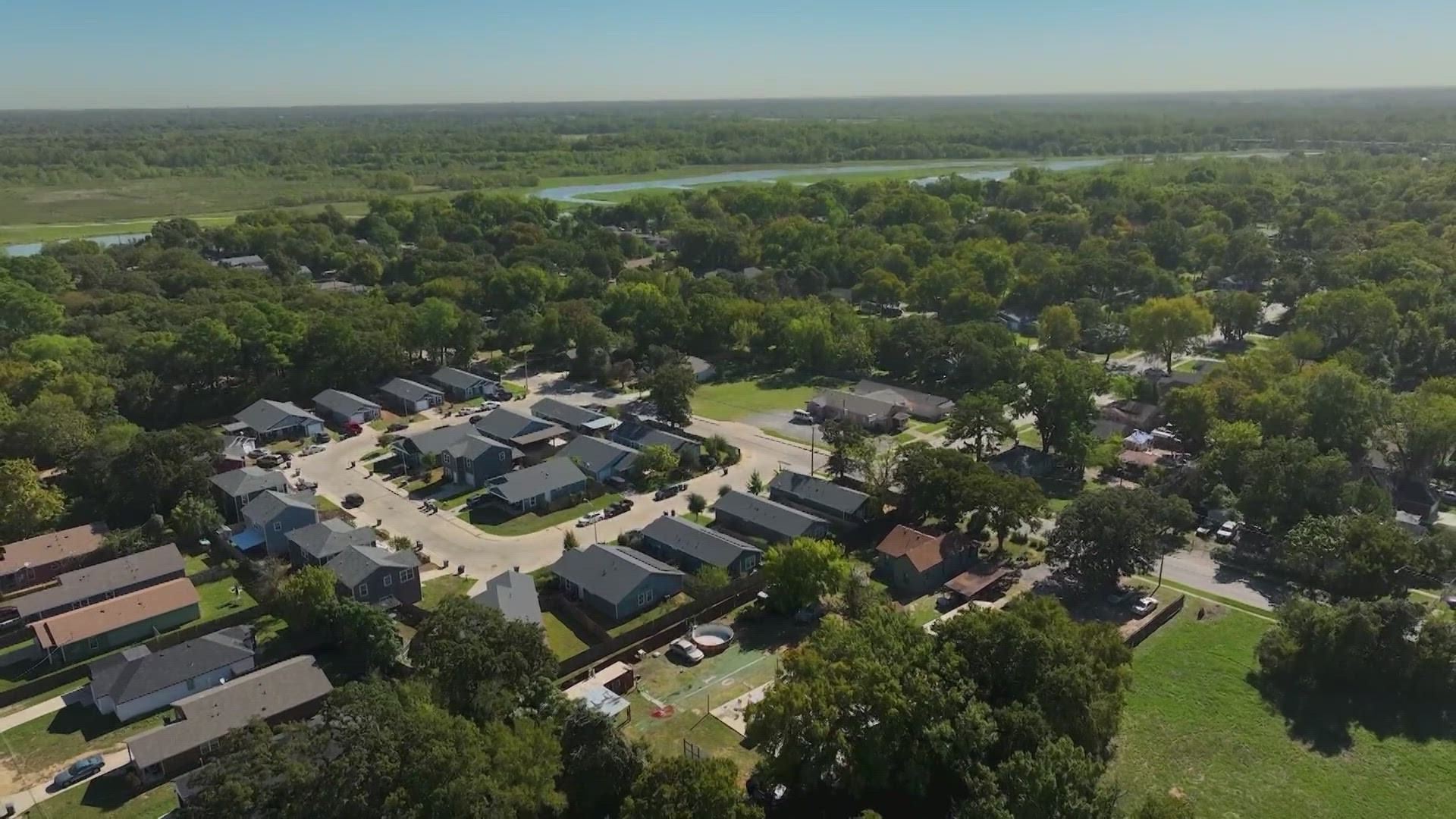DALLAS — Public health researchers said the community of Joppa has pollution levels higher than Dallas County. While the statistics are alarming for some, many residents said they are not surprised.
Huddled between industrial plants and the Trinity River is the community of Joppa.
“It’s beautiful area. If you throw a seed in it, it will grow,” said Alicia Kendrick, a Joppa community member.
However, Joppa’s history is one many said plays into its present and future.
“They took this Freedman’s town, annexed it into Dallas and zoned it industrial just to cover it up,” said Kendrick.
She and her family who all have asthma moved to Joppa in 2017.
“We moved there and noticed a decline and having to take our inhalers more and our breathing treatments,” said Kendrick.
Her 3-year-old daughter also has breathing issues.
“My daughter got an upper respiratory infection. She’s never been diagnosed with asthma,” said Kendrick.
She quickly found that they were not alone.
For three years, Texas A&M and other researchers have been surveying residents and placed monitors to measure air pollution. Thursday, they shared their findings with residents. They said Joppa had two to three times higher levels of pollution than that of Dallas County.
“The air quality is awful there. Out of the entire country, Joppa is in the top 11 worst,” said Misti Oquinn, Downwinders at Risk Community Liaison. The organization is a clean air advocacy group that helped with the study.
“I think there was some shock. Not shocked because they didn’t know there was an issue, but it gave a thing a name,” Oquinn said. “There’s no way that that doesn’t cause an issue to one’s health.”
For Shalondria Galimore, who is fourth of five generations in Joppa and whose family does not have respiratory issues, the research does not feel complete.
“We know that we see smoke in the air. We do smell things at a certain time, but for you to hone in on a particular matter, then you tell us which plant is doing it,” Galimore said. “I think they said 38% of the people on the research only lived here two to five years, so could you have brought the COPD or the asthma with you?”
Dallas City Councilman Adam Bazaldua, said in a statement, "The findings of the university's study underscores the urgent need for action to address environmental inequalities and ensure the well-being of all community members. The presence of pollution in underserved neighborhoods highlights the stark inequities that persist in our society. It is unacceptable that certain communities bear a disproportionate burden of environmental hazards, impacting their health and well-being. We must confront these inequities head-on, advocating for environmental justice and equitable distribution of resources. By addressing pollution in underserved neighborhoods, we can create a more just and sustainable future, where every individual has the right to live in a clean and healthy environment."
While more questions linger, all want what is best for the Joppa community.
“Please do not get me wrong. We want to breathe clean air. At the same time, let’s do it right,” said Galimore.
“We deserve better. Our community deserves better and we demand justice,” Kendrick said. “If we know this information, this information is public. The city has something to do about it.”
WFAA also reached out to the City of Dallas Environmental Commission and the US Environmental Protection Agency to see how they are analyzing the data. WFAA has not received a response at this time.

